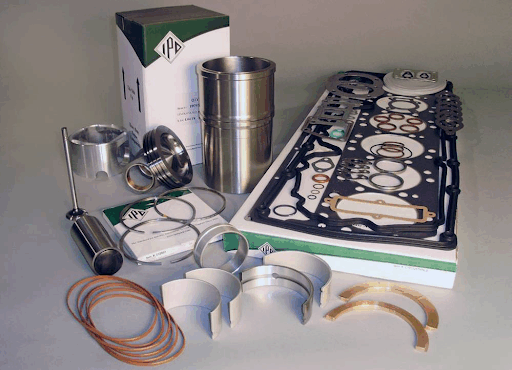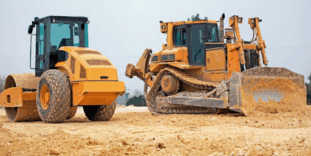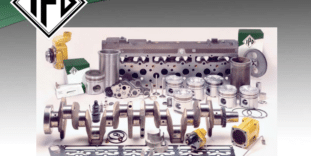Ever wonder how something as small as a piston ring can cause big-time engine damage? These little metal rings are critical. They seal the combustion chamber, control oil, and help move heat away from the piston. When they fail, it can mean loss of power, oil leaks, blue smoke, or even a full engine rebuild.
So what causes piston rings to fail? In this guide, we’ll break down the top 7 most common reasons piston rings wear out or break. We’ll also share tips on how to spot trouble early and how to prevent it from happening in Caterpillar engines, Cummins engines, Detroit Diesel engines, and other heavy-duty engines. Let’s keep your engine running strong and avoid costly downtime.
Top 7 Reasons Piston Rings Fail
Let’s look at the top 7 reasons piston rings break, wear out, or stop sealing like they should in heavy-duty engines.
1. Poor Lubrication
Oil is the lifeline of your piston rings. Without enough of it, or if you’re using the wrong kind, friction builds up. That friction leads to heat. And heat leads to failure. This is especially a concern in high-load engines like those in Caterpillar or Waukesha applications.
Common causes of poor lubrication:
- Low oil levels
- Using the wrong oil grade
- Clogged or worn-out oil filters
Tip: Check your oil regularly and follow the manufacturer’s recommended oil change schedule.
2. Contaminated Oil (Dirt, Debris, or Coolant Leaks)
Dirty oil is a silent killer. If your oil is full of dirt, carbon, or coolant, it acts like sandpaper on your piston rings.
Coolant leaks from blown head gaskets or cracked heads are major red flags. They thin the oil and add even more damage.
Warning signs:
- Milky oil on the dipstick
- Unusual exhaust smoke
- Oil that gets dirty quickly after a change
Tip: Don’t ignore coolant leaks. Replace filters often.
3. Overheating
Too much heat causes piston rings to expand more than they should. Once they lose shape, they stop sealing properly. That means blow-by and oil consumption.
What causes overheating:
- Bad thermostats
- Low coolant levels
- Broken fans or water pumps
Tip: Don’t let a Caterpillar engine or any other diesel engine overheat. If the temp gauge spikes, shut it down before the damage spreads.
4. Incorrect Installation
Even the best piston rings will fail if installed incorrectly. This can happen during a rushed rebuild or by skipping the small stuff.
Common mistakes:
- Ring gaps aligned
- Rings installed upside down
- Dirty or uneven piston grooves
Tip: Use trained technicians and follow install specs to the letter.
5. Detonation and Pre-Ignition
Detonation, or engine knock, causes pressure spikes that damage pistons and rings. It hits like a hammer and can destroy piston rings quickly, especially in high-horsepower Detroit Diesel or Caterpillar engines.
Causes of detonation:
- Low-octane fuel
- Carbon buildup
- Poor ignition timing
Tip: Always use the right fuel and listen for knocking sounds.
6. Cylinder Wall Problems
Even if your rings are perfect, they can’t do their job on a damaged cylinder wall. The seal breaks, and performance drops.
Common issues:
- Glazing
- Out-of-round cylinders
- Scratched or grooved walls
Tip: Always inspect and hone cylinder walls before installing new rings.
7. Low-Quality or Worn-Out Rings
Using off-brand or low-grade rings in your Caterpillar or Detroit Diesel engine can lead to early failure. Cheap rings might fit, but they won’t last. Heavy-duty engines need high-strength parts that can handle the load.
Even high-quality rings can wear out over time. That’s why proactive maintenance is key.
Tip: Use OE-quality piston rings like those from IPD Parts. They’re built to meet or exceed OEM specs for Caterpillar, Cummins, Detroit Diesel, and Waukesha engines.
What Do Piston Rings Actually Do?
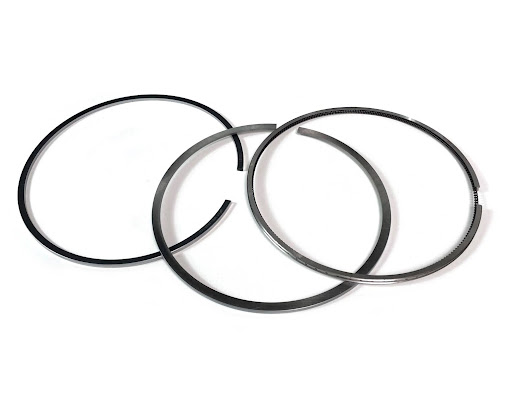
Before we jump into what causes failure, let’s get clear on what piston rings are supposed to do:
- Seal the combustion chamber: They keep combustion gases from leaking out.
- Control oil: They wipe extra oil off the cylinder walls and stop it from burning.
- Transfer heat: They move heat from the piston to the cylinder wall.
If these three jobs aren’t done well, your engine’s performance takes a hit fast.
What Happens When Piston Rings Fail?
When piston rings fail, expect:
- Loss of engine power
- Blue smoke from the exhaust (burning oil)
- Excessive oil consumption
- Poor fuel economy
- Rough idling or misfires
This is your engine telling you the rings aren’t sealing anymore. Combustion gases leak past. Oil gets where it shouldn’t. And your engine works harder or not at all.
Bonus Tip: Don’t Skip the Break-In Period
New rings need a break-in period to seat properly. If you baby the engine or push it too hard too soon, you risk early failure.
Mistakes to avoid:
- Going too hard too soon
- Being too gentle for too long
Tip: Vary RPMs and avoid long idle times during the first few hours.
How to Prevent Piston Ring Failure: Quick Checklist
- Use the correct oil and change it on time
- Replace oil and air filters regularly
- Fix coolant or fuel leaks right away
- Don’t let the engine overheat
- Follow proper break-in practices
- Have rings installed by professionals
- Use OE-quality piston rings for Caterpillar, Cummins, Waukesha, or Detroit Diesel engines
IPD Parts: Heavy-Duty Rings That Go the Distance
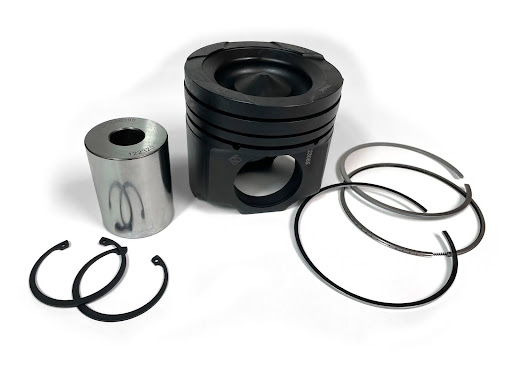
At IPD Parts, we know your engine works hard, and we build our parts to work even harder. Our piston rings are made for high-load performance and built to handle the extreme conditions found in heavy-duty engines.
Why choose IPD rings:
- Precision machining for a perfect fit
- Long-lasting materials that resist wear
- Designed for engines like Caterpillar, Cummins, Detroit Diesel, and Waukesha
- Trusted by professionals across fleets and rebuild shops
Looking for more than just rings? We also offer complete in-frame and overhaul kits for most major engine models.
Keep Your Heavy-Duty Engine Running Strong
Piston ring failure builds up over time, but the good news is that most of it is preventable. Now that you know the top 7 causes, you can take smarter steps to protect your engine.
Whether you’re working on a Caterpillar engine in a construction machine, a Cummins engine in a truck, a Detroit Diesel engine in a generator, or a Waukesha engine in an industrial plant, the same rules apply: use quality parts, follow good maintenance, and don’t ignore warning signs.
Need help choosing the right parts for your next rebuild? IPD Parts supports distributors and rebuilders worldwide. Contact us today!

